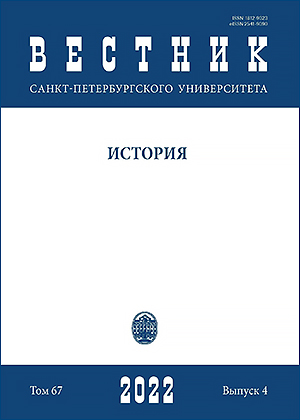The Student Riots in Germany and their Aftermath
DOI:
https://doi.org/10.21638/spbu02.2022.411Abstract
This article deals with the peculiarities of the student protests of 1968 in Germany and their political and social consequences. Among the many protests in the West that year, they had particularly far-reaching consequences for German society. These consequences were related to the heavy legacy of the Nazis, who committed grave crimes against humanity during World War II. It is for this reason that the article places a special emphasis on overcoming the Nazi past, which played an extremely important role in the emergence and spread of youth protests in the FRG. Placing the German protests in the context of a generally rather homogeneous and synchronous protest movement in all Western countries against the old values of bourgeois society and its morals poses difficulty – it is no accident that one of the symbols of youth protest was John Lennon's single “Yesterday”. The past (“yesterday”) indeed came suddenly into the spotlight and was subjected to unrelenting criticism. But the changes in the political culture of society and its mentality were very significant. The mutation toward the triumph of leftist-liberal discourse in the West German public consciousness was so complete and total that it is possible to state, as German satirists joke, that the situation was similar to the way public opinion was controlled in the GDR. As a result, it can be rightly asserted that 1968 in the FRG was perhaps the most important reason for the triumph of left-liberal political discourse in Germany.
Keywords:
revolution of 1968, new left, anti-war movement, extra-parliamentary opposition, overcoming the Nazi past, student movement in Germany, Frankfurt School of Sociology, youth subculture in Germany
Downloads
References
Downloads
Published
How to Cite
Issue
Section
License
Articles of "Vestnik of Saint Petersburg University. History" are open access distributed under the terms of the License Agreement with Saint Petersburg State University, which permits to the authors unrestricted distribution and self-archiving free of charge.





